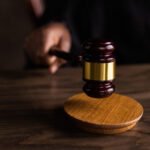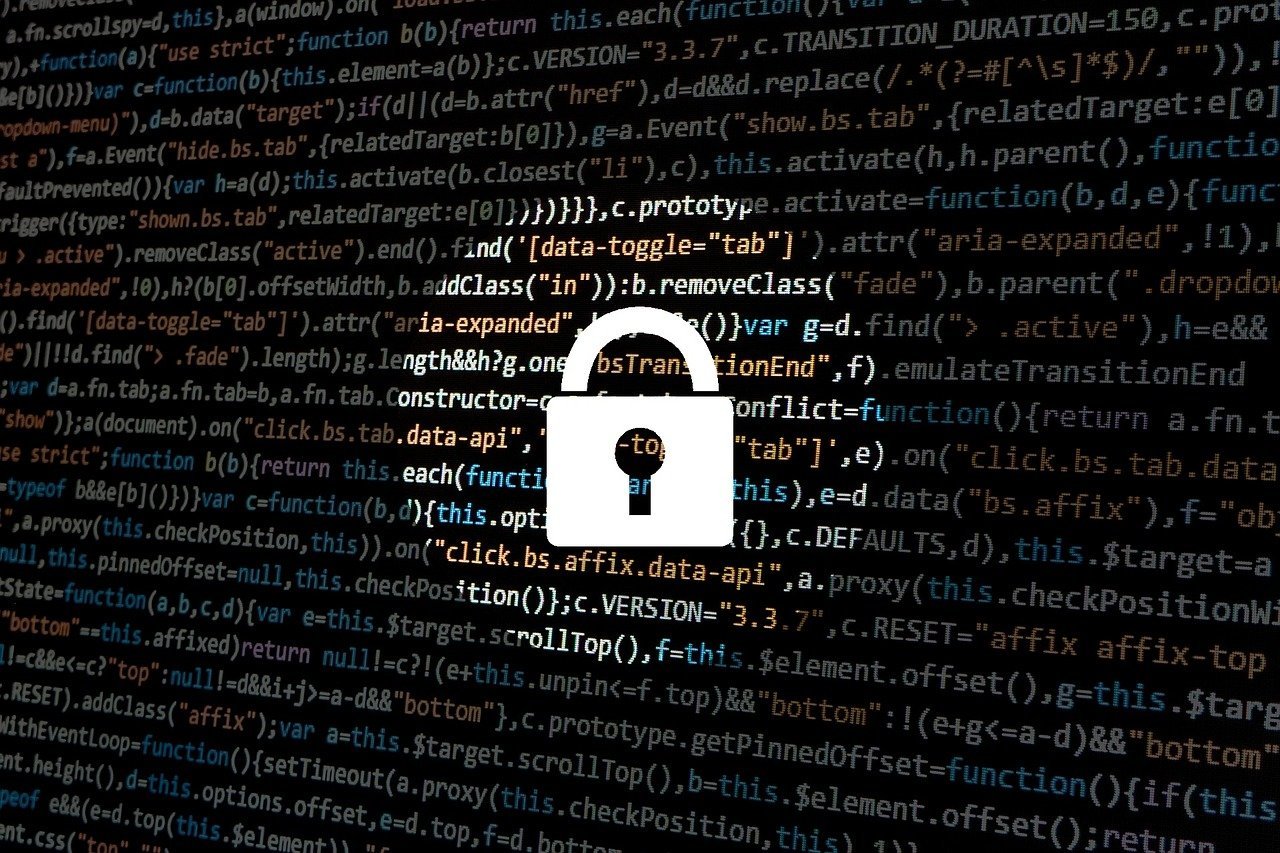A US federal lawsuit alleges that a child was forced to reveal his racial, sexual, gender and religious identities as part of a graded class assignment.
On December 22, 2020, a case was filed in the U.S. District Court for the District of Nevada called Clark v. State Public Charter School Authority, et al. Most of us have never heard of this case, which is astonishing, given its claims. It doesn’t deal directly with “gender identity” ideology, but it has potentially great implications for those of us who follow the issue, and for those of us who care about free speech and freedom of thought. My aim here is to take us through the facts of the case, as presented in the complaint, and the legal claims put forth. I assume, for the sake of argument, that the facts asserted in the complaint are true.
The reason that I am doing this is that it is virtually impossible to find anything about the case online. In order to obtain a copy of the complaint, I had to use my personal account with an online database that allows attorneys to access federal court documents. The fact that no media outlet is reporting on the case should frighten us all. Thanks to Uncommon Ground Media, you can view the complaint here.
At the center of the controversy are William Clark and his mother, Gabrielle Clark. William is a high school senior at a charter school in Las Vegas. He aspires to go to college next year and is in the process of submitting applications. William is mixed race. His mother, Gabrielle, is black and his father (deceased) was white. William inherited his father’s complexion, green eyes, and light hair. To use contemporary language, William “passes” as white. After his father died, Gabrielle had two children with a black man. So, William’s mother and two siblings are all black. The family is also Christian. The reason that this is all relevant will become obvious.
So, let’s get to the complaint itself.
The beginning of the complaint asserts “Integrity of Conscience Against State Discrimination and Coercion.” What follows is absolutely chilling. It alleges that the school (and others) “compelled [William] to make professions about his racial, sexual, gender and religious identities in verbal class exercises and in graded, written homework assignments which were subject to the scrutiny, interrogation and derogatory labeling of students, teachers and school administrators.” We learn later in the complaint that this is in the context of a civics class. You read that correctly.
Earlier in 2020, the school changed its civics curriculum. According to the complaint, “[i]n place of a conventional civics curriculum that addressed the workings of the democratic system, political history, and the importance of civic engagement,” the school instituted new lessons that “require pupils to ‘unlearn’ and ‘fight back’ against ‘oppressive’ structures allegedly implicit in their family arrangements, religious beliefs and practices, racial, sexual, and gender identities, all of which they are required to divulge and subject to non-private interrogation.” It continues: “Some racial, sexual, gender and religious identities, once revealed, are officially singled out in the programming as inherently problematic, and assigned pejorative moral attributes by Defendants.”
At no point did the school notify students or parents about this change in the curriculum, and the new lessons are mandatory for all seniors.
William’s first graded assignment this past fall was to “reveal his racial, sexual, gender, sexual orientation, disabilities and religious identities.” He was “required to submit his race, gender, sexual orientation, disabilities ‘if any’ in a homework assignment.” This was a graded assignment in a civics class. It continues:
“[The teacher] then requested each student to ‘label and identify’ their gender, racial and religious identities as part of ‘an independent reflection’ exercise which was graded. The next step was to determine if ‘that part of your identity have privilege or oppression attached to it.’ Privilege was defined as ‘the inherent belief in the inferiority of the oppressed group.’” Allegedly, “[t]he teacher’s material stated who qualified as oppressors, and who in virtue of their gender and race harbored ‘inherent belief in the inferiority’ of others.”
In short, William was being taught, as a component of a civics curriculum, that he harbored an “inherent belief in the inferiority” of his mother and siblings and that he was oppressing them on the basis of race. However, because he does not actually harbor such beliefs, he “felt that if he had submitted to the terms of this exercise, he would have been in effect adopting and making public affirmations about his racial, sexual, gender identities and religious background that he believed to be false and which violated his moral convictions. He also did not wish to profess his identities on command and in a non-private setting” (emphasis added).
However, students who did not wish to go along with the required lessons, and who were also assigned as belonging to oppressor classes, were informed that their position was “unjust privilege ‘expressed as denial.’” Thus, the complaint states that these lessons forced upon William “a deliberately designed, psychologically abusive dilemma: participate in the exercise in violation of his conscience and be branded with a pejorative label; or conscientiously refrain from participation, and suffer isolation from his classmates and be maligned by the same labeling regardless.” It is also important to note that the curriculum labeled Christianity as an example of an oppressive ideology and institution, against which Christian students, including William should “fight back” and “unlearn.”
Needless to say, William was not happy with these lessons being forced upon him. His mother agreed with and supported him. She did not agree with the curriculum at all, and she was particularly incensed – understandably – that William was being instructed, by his teachers and school authorities, to reject his Christian upbringing. She took a number of actions. At first, she complained to the school about the curriculum itself, but was not given any response that made sense. Eventually, she simply requested that William be permitted to take a different course. All of her requests were denied.
There is much more to say about William’s ordeal, and I hope that everyone will read the complaint itself. For now, it is enough to say that William took the principled stand of refusing to participate in these lessons. For that, he was given a D- and subsequently suspended. William and Gabrielle are suing the school, among other entities, alleging violations of the First and Fourteenth Amendments; discrimination on the basis of race, color, and religion; violation of Title IX; and breach of contract (on the basis that the school is in violation of its own policies).
I feel fortunate to have grown up during a time when critical thinking was not only permitted, but encouraged. When I was a high school senior, my civics class was given this assignment:
In a 20-25 page paper, address the following question: “Is socialism compatible with democracy?”
The teacher made it clear that for purposes of the assignment, there was no right or wrong answer to the question. We were to be graded on our research, the quality of our writing, and the strength of our arguments, whatever conclusion we arrived at.
Because of my general political outlook, my instinctive answer to the question was “yes.” Because of his general political outlook, a classmate of mine took the opposite position. We decided to conduct an experiment – switch positions. I would write a paper arguing that socialism is not compatible with democracy, and he would write a paper arguing that socialism is compatible with democracy. We spent the next few weeks sharing resources and challenging each other’s ideas.
We both wanted to do well, so we had to come up with persuasive arguments that ran counter to our own instincts. We both got As. Today, students like William are being graded on their ability to accurately announce their identities and getting suspended for even questioning identity orthodoxy.
This case is extremely important for those of us who are concerned about gender identity ideology, because it relates explicitly to the freedom of thought and freedom of expression of anyone who wants to push back on identity orthodoxy. There are many of us who have no interest in having, let alone announcing, a “gender identity.” But if this school has its way, all students will be obligated to announce their identities, including “gender identity.” Questioning is not permitted; indeed, it is punished.
The complaint explicitly notes that students like William are being required to make “compulsory identity confessions.” If “gender identity” ideology is anything at all, it is a social and legal mandate that we all confess our so-called “gender identity.” The outcome of this case is likely to have profound implications for those of us in the U.S. who don’t want to have anything to do with gender identity orthodoxy.
Kara Dansky is an attorney who lives in Washington, D.C. She currently chairs the Committee on Law and Legislation of the international Women’s Human Rights Campaign.







Posted by Trunchbull
10 January, 2021 at 6:37 am
Thank you for bringing this to our attention, Kara. This case is worrying for many reasons, not least of which is their definition of “privilege” – how can progress ever be made if we assume that men are incapable of seeing women as equals, etc.? What’s particularly striking to me as a lesbian is the demand that students “determine if ‘that part of your identity have privilege or oppression attached to it'” and “unlearn” / “fight back” against those parts … It’s frighteningly similar to the “c*s lesbians must unlearn their homosexuality” rhetoric being bandied about lately, and I won’t be at all surprised if “qu**r” teenagers glom onto that to attack their lesbian classmates, or if teachers do the same in classrooms. “Unlearning sessions,” indeed.